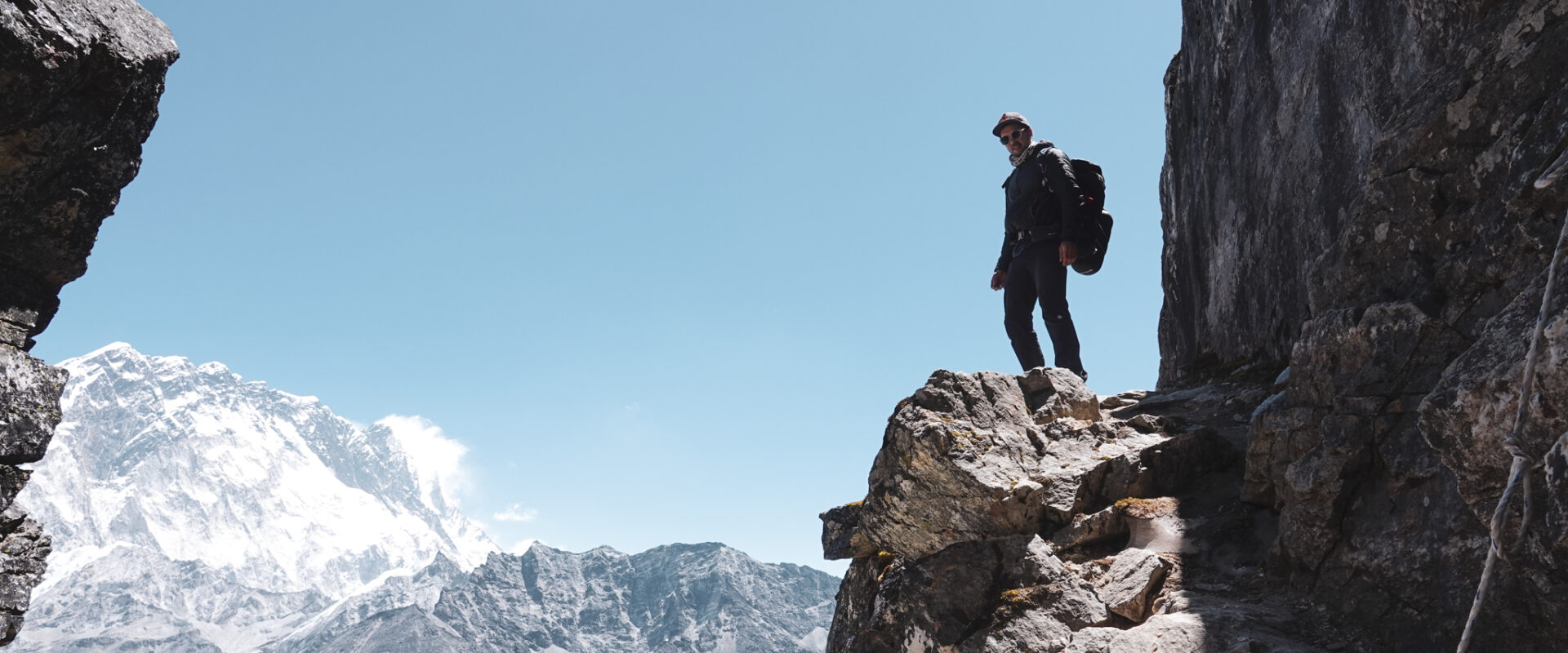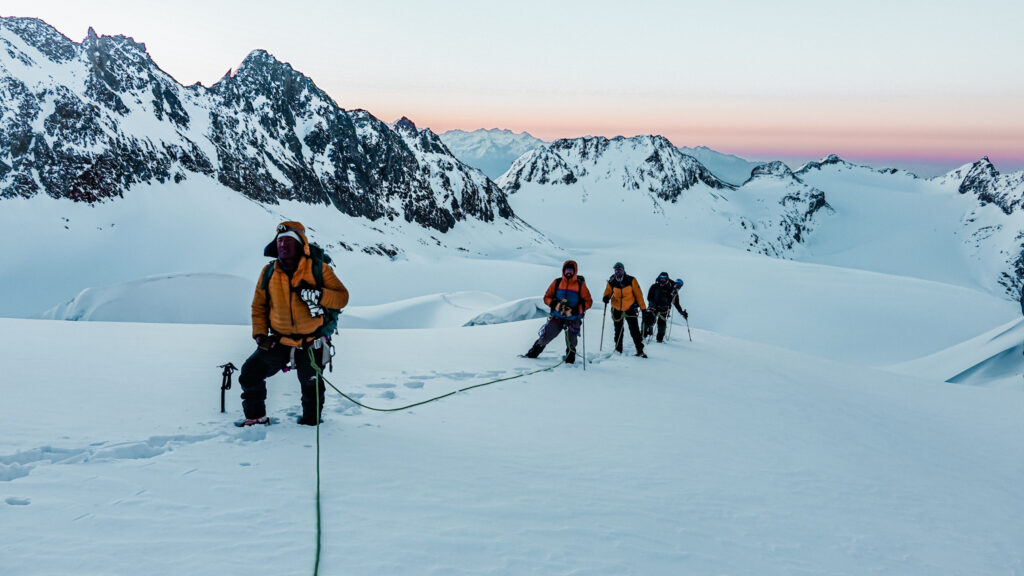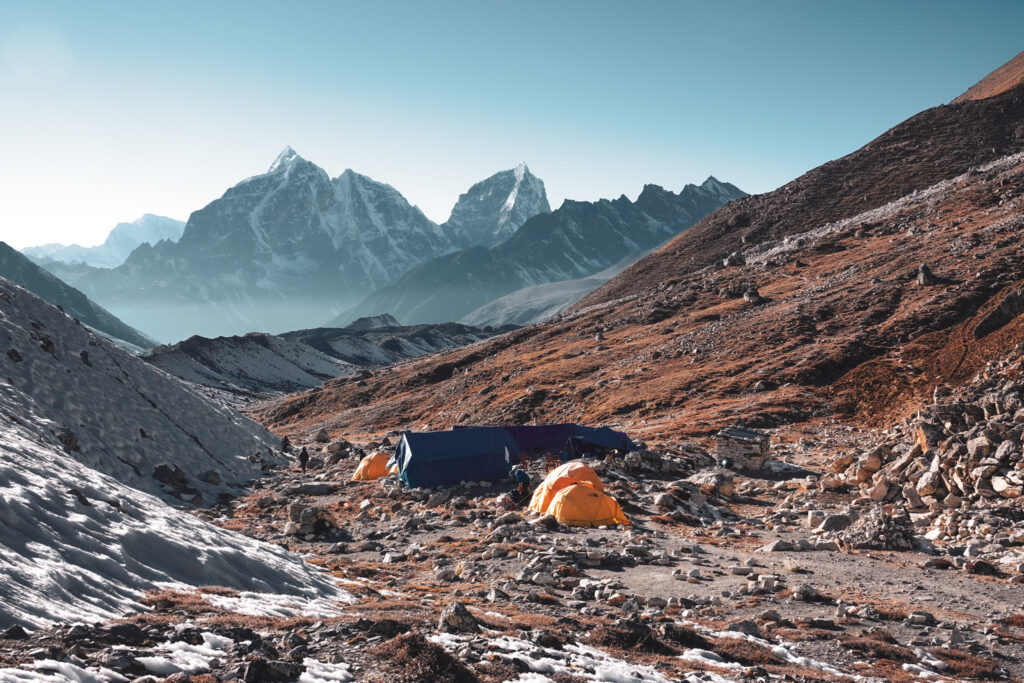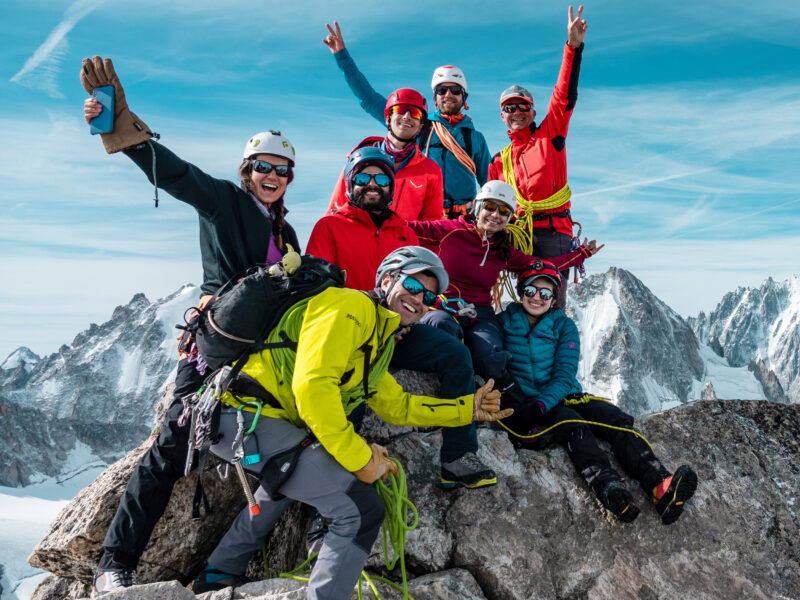BY Hazem El Shamy | January 06 2023
Get High And Enjoy It

Going to high altitudes is a trip. But, what actually happens to our physiology up there, and how can we deal with it?
The percentage of oxygen is the same at sea level as it is at high altitudes, which is roughly 21 percent. However, because air molecules at high altitudes are more dispersed due to the decreased atmospheric pressure keeping the molecules close together, each breath delivers less of these molecules to the body. Our lungs satiate, and we technically will not feel a difference, but our body definitely knows!
As we go higher, our body needs to adapt to the thin air in order to continue carrying out normal body functions, such as burning fuel for energy and sending this energy to help us breathe, digest, move, and think. Imagine depriving a motor engine of precious air and asking it to go just as fast. It will need more pistons to deliver the same result. In the case of our body, this translates to more red blood cells.
Red blood cells carry Oxygen where it is needed in the body. The more we have of them, the more efficiently our body utilizes what is available for it. The process of creating more red blood cells in the body is what is referred to as acclimatizing (or acclimating). The duration of this process differs from person to person, and there are a couple of factors involved in how quickly and efficiently this process happens.

Genetics
Our genes. This is something beyond our control, but it is the reason the most successful high altitude mountaineers are the ethnic groups who have been living in that environment for thousands of years. Over time, natural selection has taken its course and one can say that they are more adapted genetically to the high altitudes than the citybred. But it is not the only factor in the equation, and it is unknown just how much of an edge it gives.
The System
The system. These are the activities we need to do in order to survive at these altitudes. Understand it, follow it, and there’s a much higher chance you will not only survive, but thrive at higher altitude. So what exactly is the system?
Eating
Your body burns almost 3 times as much energy above 3500 meters than at sea level. The process of creating red blood cells needs a lot of energy, and our body diverts almost all of what is available to this process. That is one of the reasons we sometimes feel nauseous up there. The digestive system simply isn’t a priority at the moment and digestion is slowed down. It is also the reason we can experience general lethargy, extreme cold, dizziness and fatigue. By eating high calorie and easily digestible foods, we give our body what it needs, so it realizes it doesn’t have to divert all it’s energy to acclimating, so your digestive, circulatory, and whatever other systems can continue to function somewhat normally.
Drinking
As the red blood cell count is increasing, the amount of water our body needs to help these cells move, create energy, and deliver it to our other systems increases. If our body is now using a much higher amount of water than regular, and we continue to deprive it of that, we will get dehydrated very quickly. Dehydration has a devastating effect on every single system in our body. Now, our body is already extremely busy with so many different processes that it will not have time to help us recover from any degree of dehydration. As long as we remain at altitude, recovery is not on the priority list. So, whatever damage is done will remain with us for quite some time.

Sleeping
This is the time we are using the least amount of energy. We are at base metabolism and our body has a small window to rest and recover. We must allow it this chance otherwise, with each passing day, we become exponentially weaker.
Energy Conservation
Even when we are awake, we want to be as efficient as possible with our movement. Putting our bodies under unnecessary mental and physical stress has a compound effect. If you have a bank account, then you already know this concept. Save 10 USD a day, and in a year you have saved up 3650 USD. We must be equally as conservative with our bodies. Walking the path of least resistance, breathing deeply, keeping our heart rates low, and moving with the consistency of an android are some of the ways we conserve our energy. What I found to be extremely helpful in this regard is getting acquainted with mindfulness meditation techniques. A ten minute session as soon as you wake up will set the tone for the rest of the day, and keeps you mindful of your movements.
The only training we can do for high altitudes is experience, mainly due to the fact that each one of us will react in a unique way to it. Each time we get high, we understand how our body reacts to it, and can fine tune the ratio of the system as our body demands. Personally, I found that sleeping and eating are my priorities, and I am heavily affected the following day when I miss a single night of sleep. With every expedition, trek, and adventure in the higher realm, I learn more about my body. The more I learn, the more I enjoy the time I spend up there. Let us know in the comments if you do anything unique that helps you acclimate.
Let’s get high!
About The Author
Hazem is an avid high altitude mountaineer and adventurer that has helped lead hundreds of climbers to summits across the Himalayas, Andes, Atlas, and Caucus mountain ranges. He believes that inspiration is best served on a sharp ridge 6000 meters up in the sky, and is committed to making big mountain goals more achievable to the everyday climber.
About Life Happens Outdoors
At Life Happens Outdoors, we believe in the power of nature to transform lives. As proud members of the Adventure Travel Trade Association (ATTA) and the World Travel & Tourism Council (WTTC), our team of certified guides and outdoor professionals is committed to the highest standards of safety, sustainability, and excellence.
Discover more about our story and mission on our Meet LHO page, or explore our curated adventures such as the Tour du Mont Blanc Trek, the Climb of Kilimanjaro, and Chasing the Northern Lights.















